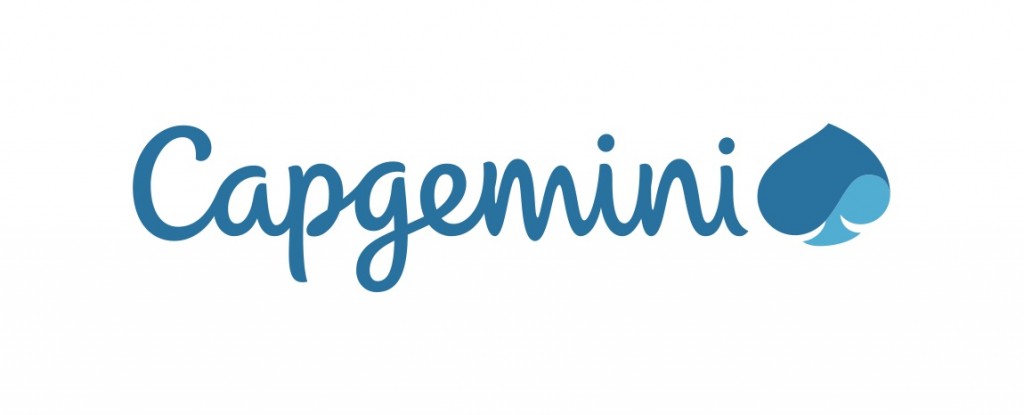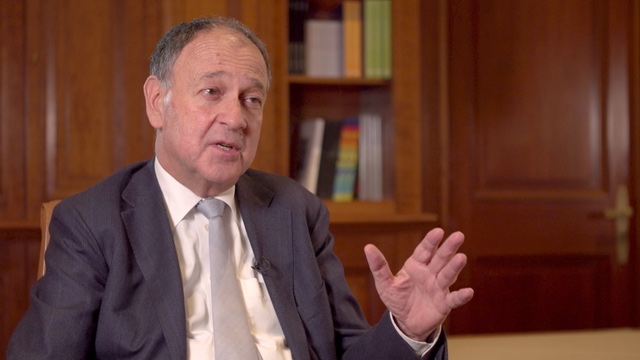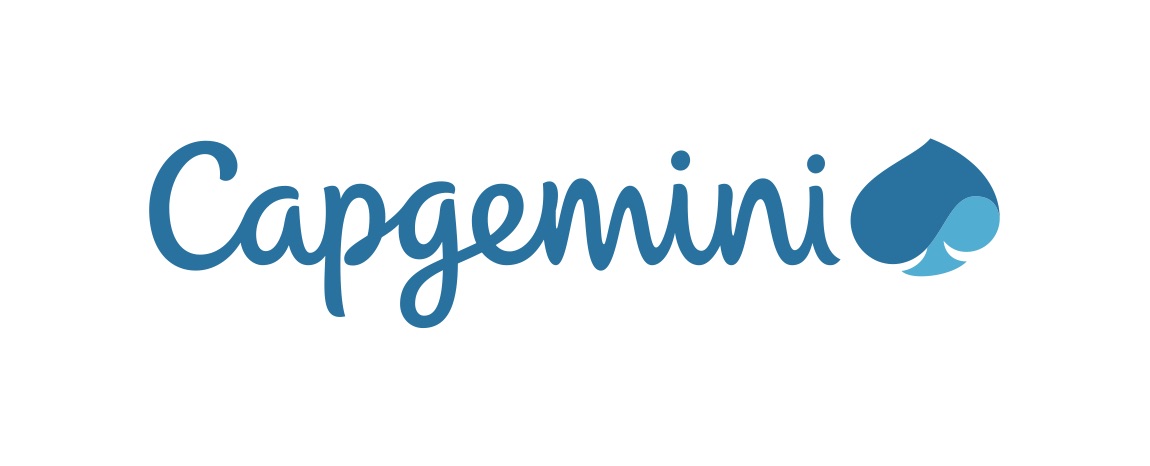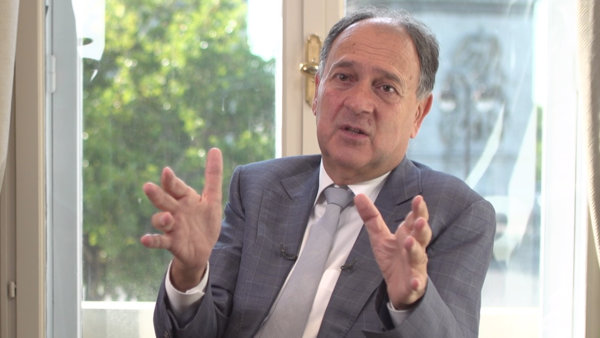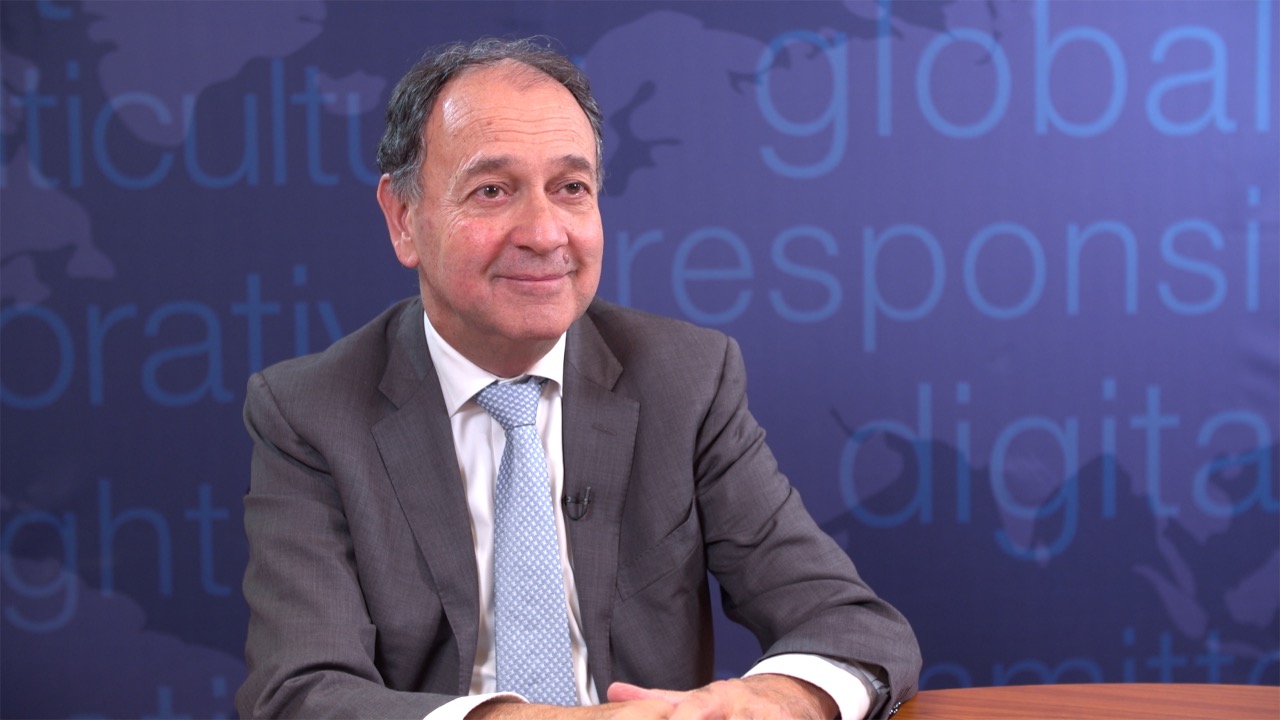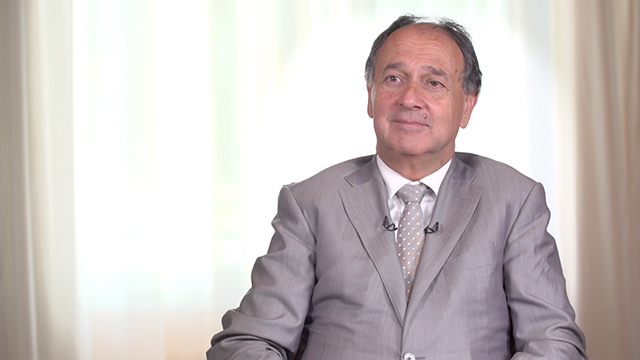EuroBusiness Media (EBM): Capgemini, one of the world’s foremost providers of consulting, technology and outsourcing services, reports results for the first half of 2013. Paul Hermelin, welcome. You are the Chairman & CEO of Capgemini. You announced an improvement of your operating margin in the first half, but a slight drop in revenues. Could you comment on this? And also, can you tell us how confident you are about your performance for the second half of the year?
Paul Hermelin: The first point is that the second quarter was slightly better in terms of revenue. We were nearly flat (-0.4) with some surprising good resistance, even in some European countries. So it was from that standpoint an evolution of business trends that make us confident that we will grow in the second half and meet our guidance. This being said, it's a market where today the engine is still the offshore production. So overall in the first half our revenue declined at constant perimeter and currency by 1.1%, while we increased the volume of work by five points. The difference is actually that our onshore headcount is now down a little bit, while we grow nearly 19% in India. So you see, we compensate for the competitiveness and the difficulties of the European market with a strong offshore momentum. And that explains notably the margin progression. We now publish our margin with the re-integration of the Indian margin to the country where we sell. And that shows that our best margin now is in North America - more than 12% operating margin - which shows the benefit of offshoring that increases our margin.
EBM: And what is your growth outlook for the second half of the year?
Paul Hermelin: We ended June with a good sales momentum. We could deliver in the first half a book-to-bill for the Project business of 1.06 - so more than 1 which positions us for growth. Our pipeline has grown by 15%, and more important our pipeline for large deals, deals above 50 million euros, has more than doubled over the year. So there is appetite, there is appetite for Project. It's a difficult market. People know that the euro zone will not grow massively in the next three years. But our customers take investment decisions. So it's about innovation, creating reason for investment, and tough competition on prices. As we now maintain and could slightly grow our onshore margin, we use the offshore engine to reduce our average. Our average salary went down by 5%, again thanks to that change of offshore leverage.
EBM: What is your guidance for the full year?
Paul Hermelin: So in terms of margin, we grew our operating margin by 50 basis points. That puts us clearly in good condition to meet our guidance of 30 basis points minimum that we can repeat with some confidence of course. I would add something: as announced, we have reduced massively restructuring. We have now reduced restructuring from €169m to less than €80m, and in the first half only 30 million. We have a massive increase of operating result, and thus the net profit that increases by 30%. So it's a combination of the strong evolution of the operating margin and a discipline of restructuring, and thus a good net result.
EBM: You recorded a very good cash situation at the end of June, what are you going to do with this cash ? More return for shareholders or acquisitions?
Paul Hermelin: The first point is that we said we look at acquisitions, and we said that for three main markets: North America - where we want to grow our market share -, Emerging markets, so out of Europe, and new technologies. This being said, we look at valuation with prudence. So we have not concluded any acquisition in the first half and we are prudent.
So what I would just say regarding the cash and the balance sheet is that, as everybody knows, we have appointed a new Chief Financial Officer. I asked him to look our balance sheet and he found that the Group, thanks to a more stringent cash discipline, can live with less gross cash. So we need less gross cash, and we have in front of us a potential dilution that could come from the conversion of the convertible bond that was issued in 2008. So the Board has taken two main decisions. The first one is that in the future, we will buy back the dilution that comes from equity-based incentives for our management: share grants, stock purchase plans, or even if we were to repeat it the BSAAR warrant. Any dilution that comes from equity-based incentives will be compensated with share buy-backs. And the second point is, as we have in front of us a risk of dilution deriving from that convertible bond, we will allocate €400m to fight that dilution over the next 18 months.
EBM: From a geographical standpoint, are you suffering from the economic situation in Europe? What about emerging economies where growth is slowing down, notably in Brazil where you acquired CPM-Braxis almost three years ago? And finally what about the US?
Paul Hermelin: So first, I would start by mentioning that we had a pretty strong growth in Emerging Markets, Asia-Pacific and Latin America in the second quarter: 15%. So that's better than what I heard from some of our peers, and notably in Brazil we have grown by 18%. So, our big contract with Caixa, which is a large public bank in Brazil, is fueling good growth in Brazil. So I feel quite safe on these Emerging Markets.
North America is vibrant. I told you, best margin of the Group - 12% operating margin - which is brilliant, but with very modest growth, 1% in the second quarter. So that is less than what we hoped for. So, today we have rebuilt the pipeline, motivated the management. I would expect us to resume growth in the second-half so that we gain market share again by the end of the year. So a solid margin, probably we must improve the top line. Just a word, in North America a bright performance in the financial sector.
Now regarding Europe, we know that Europe is poised for mediocre growth, if any, in the next three years. But we still can sail in that environment. I just want to look at France, where in the first quarter we declined by 4.8%, and in the second quarter we grew by 0.7%, which shows that in a difficult economy, with the right offer, the good focus on innovation, and a very competitive offer - thanks to offshoring again - we possibly can grow in some markets. I notice that in the UK we shrunk, notably because of the large Aspire contract, but in the commercial space we have grown by 22%. So it is up to us to show that in a mediocre environment, we can handle the European challenge.
EBM: How are you currently managing innovation and the shift to new technological trends?
Paul Hermelin: So my view is that the market is driven by two main trends. The first one is customers want the best service for the best price. Thus, big investments in industrialization, methodologies, tools and offshore production. But there's an appetite for innovation. Today you know we live with buzzwords. The new buzzword is SMAC. SMAC stands for Social, Mobility, Analytics, and Cloud. And we see, and notably in the US, a real shift from traditional services to Cloud services. This is demanding. The Group has built strong positions, strong alliances. I think we are very strong with Microsoft, with our new offering SkySight that we launched mid-June. We are pretty good with Amazon Web Services too, and some innovative solutions like NetSuite - I think that we are even their first partner globally. So we must place bets on these new markets, I am confident that this will be lever for growth.
EBM: You now have 44,000 employees in India and have embarked on a journey to optimize your pyramid of skills. Will you continue to recruit in your historical countries?
Paul Hermelin: Yes we will. Today the first point is we need to rejuvenate the pyramid every year because young graduates are the energy we need to bring the momentum, the mindset, the fire to the company. So we need that and we will continue. So we use attrition. When people resign, we first try to promote, and not do what we call lateral hires. So we have a big focus on young graduates. And we have recruited 43% of young graduates in the first half, which is unusual because usually, as you all know, they get their diplomas in September and the season for graduate recruitment is the third quarter. But I think we have been doing a good job. Historically we do that but still, we recruited more than 50% of our employees in our traditional countries. Frankly, we don't give up. We must have active, dynamic populations on both sides, in production centers - wherever they are - and with the clients. The clients want to see a mixed population of senior experienced people and young energetic people. So we will continue to recruit in what we would call our onshore locations.
EBM: Your share price has risen by some 24% since the beginning of this year. Before we part company, do you have one last message that you would like to address to your shareholders is what is otherwise a difficult climate?
Paul Hermelin: First point: as I said, I think the group has delivered solid work in optimizing the profit and loss. I think the P&L was well managed. We now introduced more discipline in our balance sheet management. So we will be a little more rigorous regarding what we do with cash, more focused on cash collection. Today, all our managers are incentivized on cash collection, I think that's important. And with some buy-backs, we have shown that we care for dilution. I think that's an important sign for shareholders. But beyond that, the end of the large wave of restructuring also allows us to translate operating margin into net profit. And you see the evolution of the net profit is quite significant, since over one year we moved our net profit percentage on revenue from 2.6% to 3.5%. This is a massive growth and we will continue on that journey. I dream one day we will drive and guide on a normalized EPS (Earnings Per Share) and that would help shareholders to know where they can place their money and what are the returns they can expect.
EBM: Paul Hermelin, Chairman & CEO of Capgemini, thank you very much.
Paul Hermelin: Thank you Adrian.

